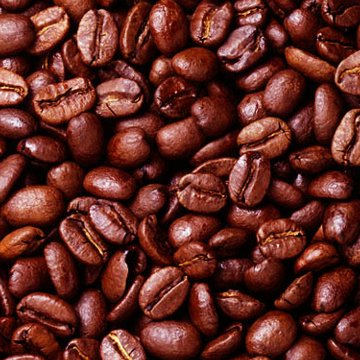Commodities & Metals
Coffee Starts to Weigh on Roasters and Retailers (SJM, SBUX, GMCR, KFT, MCD, JO, CAFE)
Published:
Last Updated:
 As is the case with crude oil, people just can’t seem to get enough coffee. Global consumption of coffee rose 2.4% in 2010, to 134 million bags (each bag weighs about 132 pounds). Demand continues to grow in China, where coffee consumption totals less than 1% of global per capita consumption.
As is the case with crude oil, people just can’t seem to get enough coffee. Global consumption of coffee rose 2.4% in 2010, to 134 million bags (each bag weighs about 132 pounds). Demand continues to grow in China, where coffee consumption totals less than 1% of global per capita consumption.
Average coffee prices in April reached a 35-year high of just over $2.24/pound, according to the International Coffee Organization (ICO). Coffee roasters and retailers like The J.M. Smucker Co. (NYSE: SJM), Starbucks Corp. (NASDAQ: SBUX), Green Mountain Coffee Roasters Inc. (NASDAQ: GMCR), Kraft Inc. (NYSE: KFT), and McDonald’s Corp. (NYSE: MCD) have raised prices as much as they have dared, but still don’t cover higher costs.
Smucker, which owns Folger’s, and Millstream brands, reported earnings up 11%, excluding items, chiefly as a result of higher prices. For the quarter, the company paid 11% more for coffee, which is its largest business. Coffee sales rose 21% and the company boosted prices by an even higher 23%. Smucker expects coffee demand to continue growing despite the price increases.
Starbucks expects to expand its operations in China from the 450 stores it operates today to 1,500 by 2015. To that end, the company has signed a deal with a Chinese partner giving Starbucks full control of 250 stores it previously co-managed with Hong Kong-based Maxim’s Caterers Ltd. In exchange, Maxim’s gets full control of 110 Starbucks stores in Hong Kong. Starbucks’ strategy is to make China its second home market, and, as the per capita consumption figure indicates, there’s enormous room for expansion in China, where Starbucks’ single store sales average about 60% of US single store sales.
Supplies of the higher quality arabica beans have been very tight as demand continues to grow. Crops in some Central and South American countries are increasing production after several off-years and Brazil, the world’s largest producer and exporter, has narrowed the difference between its good and bad years. Arabica beans posted their highest price in nearly 35 years at $3.09/pound in early May.
Investors interested in getting in on the coffee action have only a few choices. One, of course, is to buy a futures contract for 37,500 pounds of coffee. Another is to look at two exchange-traded notes: the iPath DJ-UBS Coffee Sub-Index Total Return ETN (NYSE: JO) and the iPath Pure Beta Coffee ETN (NYSE: CAFE).
JO a single-commodity sub-index which consists of one futures contract on coffee. The fund’s market cap is $129 million and its 52-week range is $39.59-$81.13. Shares are trading at $70.01 at about noon ET today. The fund was created in June 2008, and has returned a profit of better than 12% since then.
CAFE is a single exchange traded futures contract, except during the roll period when the index may hold two futures contract. The fund’s market cap is a tiny $5.35 million and its 52-week range is $43.00-$54.59. Shares are trading up about 1% at $44.93 today. The fund was created in April of this year.
Paul Ausick
Want retirement to come a few years earlier than you’d planned? Or are you ready to retire now, but want an extra set of eyes on your finances?
Now you can speak with up to 3 financial experts in your area for FREE. By simply clicking here you can begin to match with financial professionals who can help you build your plan to retire early. And the best part? The first conversation with them is free.
Click here to match with up to 3 financial pros who would be excited to help you make financial decisions.
Have questions about retirement or personal finance? Email us at [email protected]!
By emailing your questions to 24/7 Wall St., you agree to have them published anonymously on a673b.bigscoots-temp.com.
By submitting your story, you understand and agree that we may use your story, or versions of it, in all media and platforms, including via third parties.
Thank you for reading! Have some feedback for us?
Contact the 24/7 Wall St. editorial team.